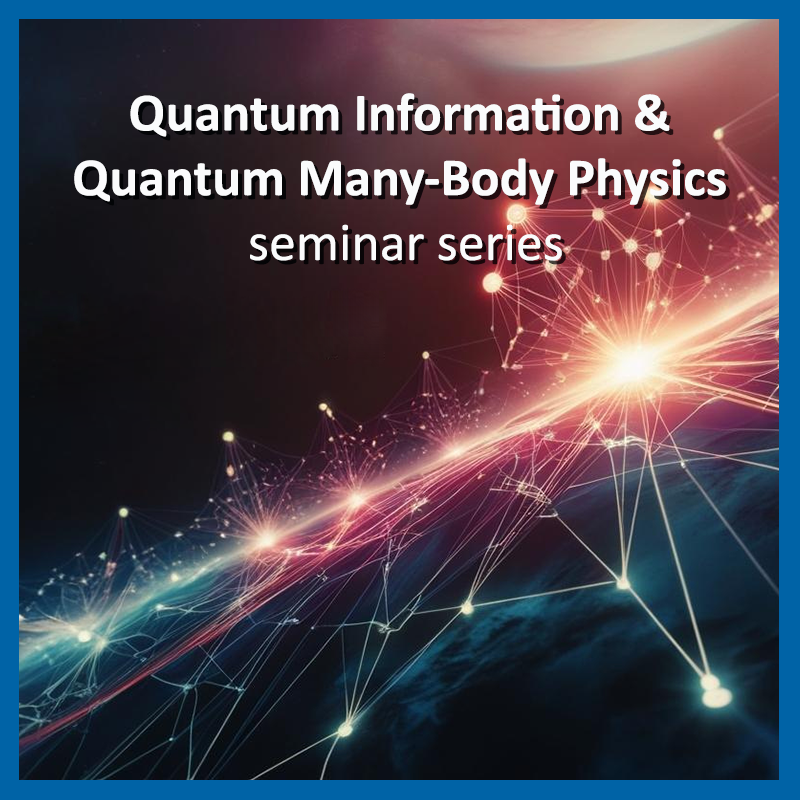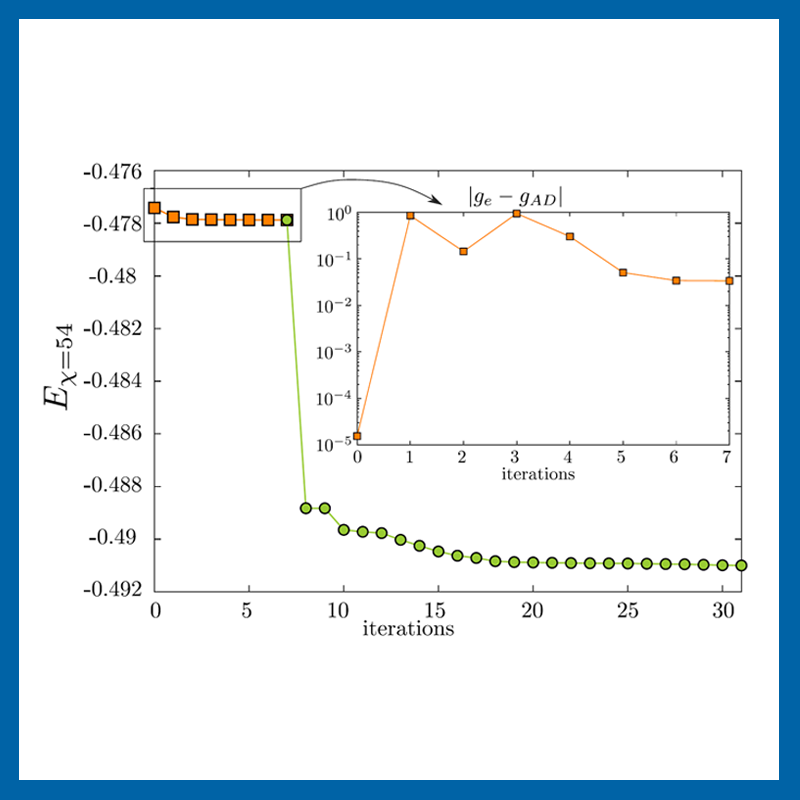In our group, we systematically explore the rich field at the interface of Quantum Information and Computation and Quantum Many-Body Physics, based on a description of these systems which exposes the inner structure of their underlying complex entanglement.
Read more ...
News
About
Quantum computers and other quantum devices hold the promise to revolutionize the capabilities of information processing. At the same time, complex quantum many-body systems keep unfolding an increasingly rich variety of exotic phenomena which could lead to novel materials and technologies. Both of these fields are closely linked through the complex structure of the quantum correlations, termed entanglement, which build up between their many constituents, be it the particles in a material or the quantum bits in a quantum computer.
In our group, we systematically explore the rich field at the interface of Quantum Information and Computation and Quantum Many-Body Physics, based on a description of these systems which exposes the inner structure of their underlying complex entanglement.
- We systematically study and mathematically classify the different types of entanglement structures which complex quantum systems can exhibit
- We develop and characterize new models and materials which display novel types of quantum behavior
- We come up with ways to probe, identify, and exploit exotic quantum behavior in a system of interest, both in simulations and in experimental setups
- We explore different ways in which complex quantum many-body systems can be used as quantum computers and for the storage of quantum information
- We work towards quantum algorithms for the simulation of quantum-many body problems, in particular on near-term intermediate scale quantum (NISQ) devices.
The group, led by Norbert Schuch, was established in October 2020 at the University of Vienna jointly between the Faculty of Physics and the Faculty of Mathematics. Our group comprises experts from both mathematics and physics, and with expertise in analytical as well as numerical approaches, in order to successfully tackle the wide range of problems at the interface of Quantum Information and Quantum Many-Body Physics.

![PEPS [depiction by Schuch Group (WTX, KL)] depiction of PEPS by Schuch Group (WTX, KL)](/fileadmin/_processed_/csm_PEPS_03_3325bc80cb.png)
![PEPS [depiction by Schuch Group (WTX, KL)] depiction of PEPS by Schuch Group (WTX, KL)](/fileadmin/_processed_/csm_PEPS_03_cc031e367f.png)
![The AKLT model [depiction by Schuch Group (WTX, KL)] depiction of the AKLT model by Schuch Group (WTX, KL)](/fileadmin/_processed_/csm_AKLT-model_03_10e40f361b.png)
![The AKLT model [depiction by Schuch Group (WTX, KL)] depiction of the AKLT model by Schuch Group (WTX, KL)](/fileadmin/_processed_/csm_AKLT-model_03_16ddc5ae91.png)
![Positive Bias Makes Tensor-Network Contraction Tractable [STOC '25: Proceedings of the 57th Annual ACM Symposium on Theory of Computing (2025), pages 471 - 482]](/fileadmin/user_upload/a_schuch/News/2025_News/202506_STOC25_News-Visual_draft_01.png)

